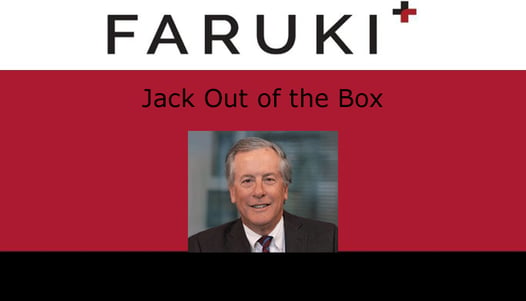- December 18, 2023
- Jack Greiner
- Jack Out of the Box
 A three-judge panel of the United States Court for the Second Circuit recently ruled that former President Donald Trump may not invoke presidential immunity in the defamation lawsuit filed by E. Jean Carroll. Interestingly, the appellate court did not reach the substance of immunity claim, but rather found that Mr. Trump had waived the defense by failing to timely assert it.
A three-judge panel of the United States Court for the Second Circuit recently ruled that former President Donald Trump may not invoke presidential immunity in the defamation lawsuit filed by E. Jean Carroll. Interestingly, the appellate court did not reach the substance of immunity claim, but rather found that Mr. Trump had waived the defense by failing to timely assert it.
On June 21, 2019, E. Jean Carroll publicly accused Mr. Trump of sexually assaulting her in the mid-1990s. Mr. Trump, who was President at the time of the accusations, denied Ms. Carroll's claims in a series of public statements. In the first, released that same day, he claimed that "it never happened," he "never met" Ms. Carroll, and that "[s]he is trying to sell a new book—that should indicate her motivation." The next day, he stated that "[t]his is a woman who has also accused other men of things . . . It is a totally false accusation."
On November 4, 2019, Ms. Carroll sued Mr. Trump in a state court in New York. Mr. Trump removed the case to federal court. In his original answer, Mr. Trump did not list "presidential immunity" as a defense. He raised it for the first time in a reply in support of a motion for summary judgment, which he filed in January 2023.
Presidents have "absolute . . . immunity from damages liability for acts within the outer perimeter of his official responsibilities." The appellate court cited as an example a case involving President Nixon, where the court found Nixon immune from a lawsuit by an ex-Air Force employee who alleged that Nixon fired him in retaliation for testifying before Congress about cost overruns. But the immunity is not absolute, as the court illustrated by pointing to a case involving President Clinton, where the court ruled he was not immune from civil liability for actions allegedly taken when he was Governor of Arkansas because they were not official presidential acts.
In support of his argument, Trump contended that the presidential immunity act was jurisdictional – that is, if the case involved official acts by the President, the court lacked jurisdiction to even entertain the case. Mr. Trump further contended that if the defense was jurisdictional, he could not waive it, no matter how late in the game he raised it.
The appellate court rejected Mr. Trump's arguments. It found no cases where a court had treated the presidential immunity act as jurisdictional. In the case involving President Nixon, the court addressed the immunity defense after it found it had jurisdiction to hear the case. In the appellate court's view, that fact hurt rather than helped Mr. Trump's case.
The court also noted an important policy reason for not treating immunity as a jurisdictional matter – the President may want to litigate the lawsuit. But under Mr. Trump's version, a President would have no opportunity for litigation and vindication.
Once the appellate court found the defense could be waived, it had little trouble concluding that Mr. Trump had waived it. Mr. Trump waited three years to assert the defense. That is a long time, even by court standards. And the court found that Ms. Carroll would be prejudiced by the delay. Because Mr. Trump did not assert the immunity defense, she had not conducted any discovery on the issue. For this reason, the appellate court upheld the trial court's finding that Mr. Trump had waived the defense.
Sometimes cliches are true, but other times not so much. Here, "better late than never" had no application.
